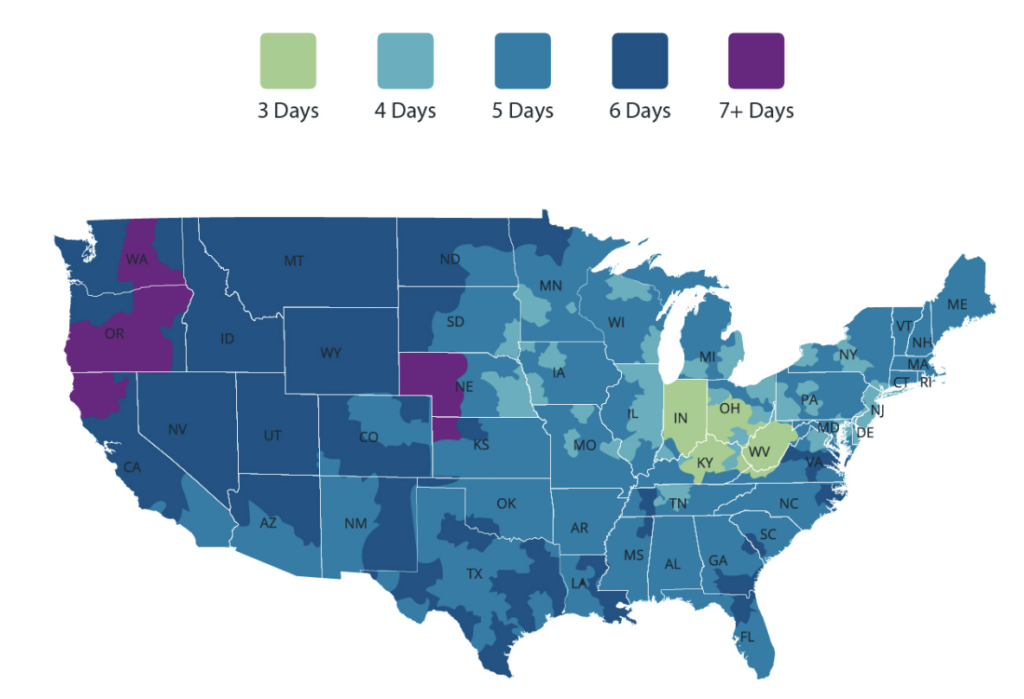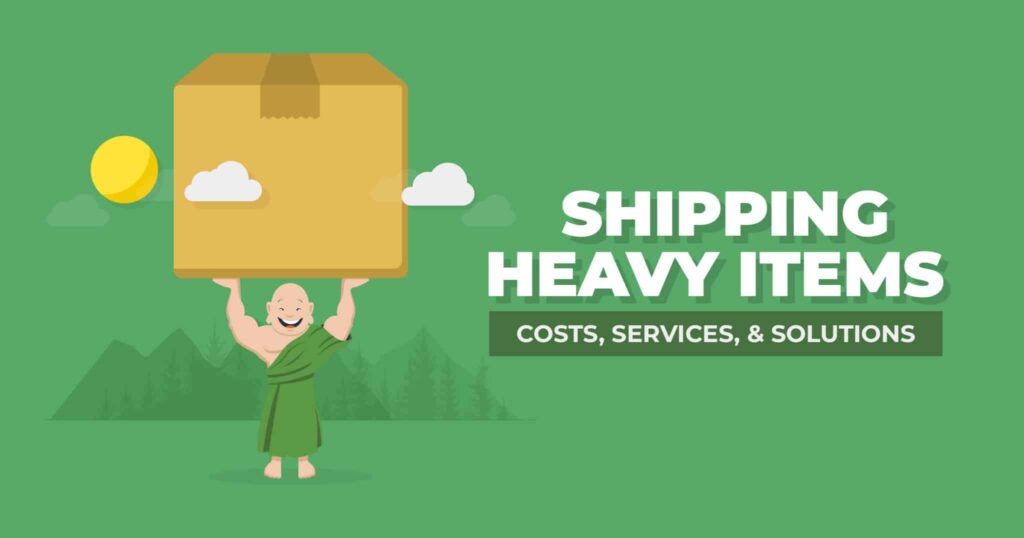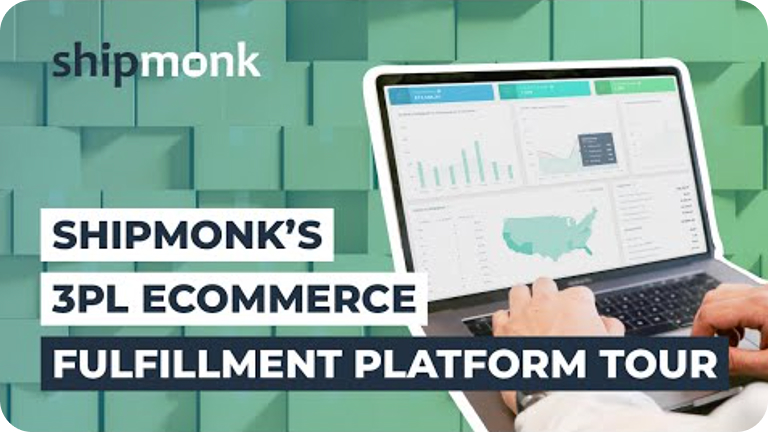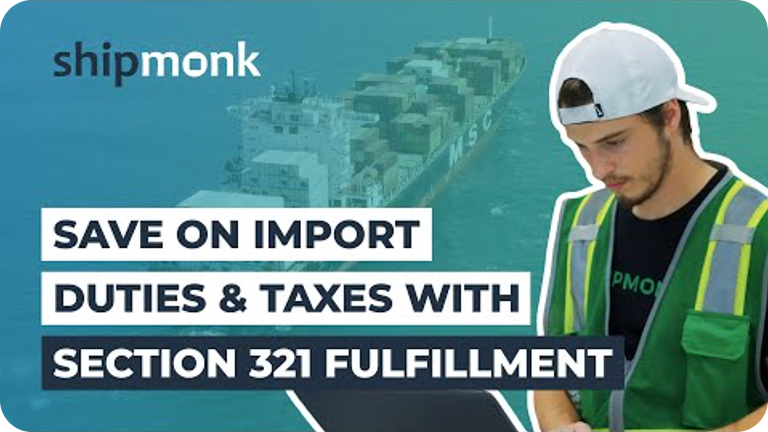If your ecommerce business sells lanyard bracelets or fuzzy socks, shipping costs and shipping processes are easier than, say, if you sell grand pianos or plasma televisions. That’s just the way it goes. However, the thing about any successful ecommerce business is that as long as you have the right systems in place and partners to rely on, the ins and outs of shipping (and all other logistics) can be simple.
Modern 3PLs understand the importance of working with their ecommerce clients to attain manageable shipping costs, easy shipping processes, and a transparent understanding of what goes into both. For ecommerce merchants who are selling pianos, plasma screens, etc. the topic of heavy shipping costs and shipping processes is a must. But what are the need-to-know aspects of heavy shipping that will keep your ecommerce business from crumbling under the weight?
Heavy Shipping Checklist
When it comes to figuring out the shipping costs and shipping processes for your heavy items, the six main areas you need to consider are:
- Shipping Carriers
- Shipping Services
- Dimensional Weight
- Types of Dunnage
- Origin and Destination
- Insurance and Tracking
1.) Shipping Carriers
There are many factors to take into account when choosing a shipping carrier—tracking, insurance, services offered, global network, etc. If you’re a merchant that sells heavier goods, definitely investigate your shipping carrier thoroughly because the speed with which your products reach buyers, and the condition they reach those buyers, is crucial to customer satisfaction and, thus, the growth of your business. Let’s look at an overview of the four main shipping carriers to get an idea of their specialties, and how they can help your ecommerce business get its fabulous heavy goods to customers across the world!
USPS – is the only shipping carrier legally allowed to touch every mailbox in the United States. Additionally, the carrier’s extensive network allows ecommerce merchants to reach customers with low shipping costs and fast speeds. That being said, if you are in the business of shipping heavier items, USPS may not be best because this shipping carrier is traditionally utilized for sending smaller, lightweight packages (under 20 pounds) with a maximum weight of 70lbs per package.
UPS – is actually the oldest and largest commercial ground distribution network in the US. More relevant to you, as an ecommerce merchant that sells heavier goods, UPS is a leader in the shipping industry for larger, heavier packages. If your ecommerce business sells dishwashers, DJ turntables, furniture, and so on, UPS may be the right shipping carrier for you—shipping a maximum weight of 150lbs (more than twice the USPS threshold). UPS is also a trusted shipping carrier for luxury products and high-value items, categories that some heavy goods may fall under (for example fancy stereo systems).
FedEx – is known for its speedy shipping and specialty shipping. In terms of getting ecommerce orders to their final destinations quickly, FedEx has fantastic overnight shipping and express shipping options. This shipping carrier also excels in shipping perishable items and products that are dependent on strict temperature control, thanks to FedEx’s proprietary cold packaging material that can shipments between 35°F-46°F for up to 96 hours without having to use dry ice or gel packs. So, although FedEx is not known for heavy shipping specifically, if you are shipping tons of pounds of ice cream or a large Bluefin Tuna, FedEx may be the shipping carrier for you.
DHL – sets the bar high with its fast, dependable global shipping services. That’s why ShipMonk is proud to utilize DHL in our extensive network of shipping carriers. Sometimes your customer base is truly diversified across the world, which presents challenges to maintaining margins across so many shipping profiles. So, if as an ecommerce merchant (regardless of the weight of your products), shipping internationally is at the top of your priority list, DHL may be right for you.
2.) Shipping Services
We just discussed all the different shipping carriers, but another critical factor is shipping services. ShipMonk works with the most prevalent, reliable shipping carriers to get ship done on a daily basis (USPS, UPS, FedEx, DHL and the nation’s largest private carriers). These carriers’ extended shipping networks provide a range of services to get customers their ecommerce goods as swiftly and effectively as possible. Our 3PL fulfillment centers maximize customer satisfaction by utilizing economy, standard, and 2-day shipping—all of which have different pricing models depending on what you are sending and where.
Naturally, the faster you need your goods to reach the customer, the more expensive the shipping option (the fastest option for every shipping carrier being some form of overnight shipping). If the ecommerce goods you’re sending are heavy, there are already going to be added costs to the shipping process. So when selecting what shipping service to go with, keep that in mind, and factor in part of those costs into your product pricing structures so your customers assume some of the cost and you’re not taking the financial hit alone.
Now if we’re talking the exact method of transport, the least expensive way to ship heavy items is typically consolidated freight shipping. However, definitely compare costs, get quotes, and take into account the other shipping factors listed below when running your calculations. You can continue to research shipping costs by carrier more specifically on individual shipping carrier websites with their calculator and rate tools: USPS, UPS, FedEx, DHL.
3.) Dimensional Weight
Dimensional weight is the “theoretical” weight of the package you are shipping. It is a relatively new concept in the shipping industry; for example UPS and FedEx adopted it in 2015 and USPS started using it in 2019. Dimensional weight started becoming important for shipping carriers because they were losing money on items that were large, but light.
With dimensional weight, shipping carriers take into account how much volumetric space your package utilizes, then they calculate how much your package would weigh by applying their own minimum density number. Based on that, shipping carriers charge senders for whichever is more expensive: the actual weight of the package or its dimensional weight. These technicalities can really matter (and add up) when you are calculating your shipping spend. So be vigilant about the exact weight of what you are sending and the package’s “theoretical” weight, and compare quotes from different shipping carriers regarding both. Working with a 3PL fulfillment provider can also make your life much easier, as they handle the shipping details for you, working hard to get you the best value. To learn more about DIM weight, check out ShipMonk’s dimensional weight calculator.
4.) Dunnage for Shipping Heavy Items
Dunnage is durable padding material used to protect goods during the shipping process. If you have a heavy weight item that needs to be shipped, it is important to determine what kind or kinds of dunnage will best accommodate the shipment.
Inexpensive Dunnage
Some of the most common types of dunnage for shipping goods are: bubble wrap, packing peanuts, air pillows, crinkle or kraft paper, blurb, foam, and corrugated paper. In different quantities and combinations, these dunnage materials are great for protecting items at all levels of fragility, cushioning goods within various sizes of boxes/containers, and effectively filling gaps and missing spaces within packages. Most are reusable, inexpensive, and effective. Some (like crinkle paper, kraft paper, and corrugated paper) are better for the environment than others.
Of all these types of inexpensive dunnage, corrugated paper is probably most often used for heavy weight items. Though this type of dunnage wasn’t created for heavy products, its high-tech construction supports a wide range of weights while also safeguarding products against moisture. In general though, many heavy goods will need to combine inexpensive kinds of dunnage with expensive dunnage for max protection.
Expensive Dunnage
Solid Plastics – are great dunnage material for shipping high-value products that need intense protection. If your heavy weight goods have very specific measurements, solid plastic dunnage is a reliable route because it can be modeled to meet exact shapes and measurements.
Wood and Steel – are definitely on the heavier side of dunnage materials, but in terms of the heavy weight products your ecommerce business ships, these can be used to partition containers, create barriers between items, and hold up to the density of heavy goods while protecting them.
Custom Dunnage – may be necessary if your heavy weight products have extremely uncommon designs or shapes that need to be accommodated, fragile components with specific dimensions, or many pieces involved in customer assembly, all of which need to be carefully safeguarded for shipping.
5.) Origin and Destination of Package
Shipping costs go down depending on a variety of factors. One important influence is the actual distance your ecommerce goods need to travel to get from seller to customer. Regardless of whether your package weighs 100lbs or 1,000lbs, shipping carriers use origin and destination to determine which shipping zone your goods are going to. The farther away those delivery points (the higher the zone) the greater your shipping cost.

6.) Insurance and Tracking
Many shipping carriers offer free tracking and insurance up to a certain value for packages being sent. As an ecommerce merchant, it’s important to always be aware of your shipping carrier insurance policies (so your bottom line and your customers are protected), especially given that heavy weight products are often on the more expensive side. Tracking capabilities are also key because you, as an ecommerce business owner, want to know where your goods are, and customers want to keep an eye on the status of their orders.
If things go smoothly, both you and your customers have extra peace of mind from point of sale to delivery. If something goes wrong and the shipped products are lost or damaged in transit, your insurance and tracking processes can help you understand what went wrong, where, and help shield you and the customer from financial loss. 3PL fulfillment providers like ShipMonk utilize a combination of tech-driven solutions to ensure your goods and customers are taken care of every step of the way.
Our advanced 3PL fulfillment platform gives new meaning to the term “software,” by providing ecommerce merchants with complete transparency to monitor their inventory. Meanwhile, our post-purchase suite MonkProtect enables easy claims and resolutions if something does happen to a product in transit.
Let’s Get Ship Done
When shipping heavy items, there are many factors to take into consideration, all of which are important. Once you’ve done your research on shipping carriers, shipping services, dimensional weight, dunnage, origin and destination costs, and insurance and tracking options, it may seem overwhelming. However, that’s why 3PL fulfillment providers like ShipMonk exist. Our mission is to help you stress less and grow more.
While we can’t do anything about the weight of your actual goods, we can certainly lighten the stress of shipping them. ShipMonk’s transparent, state-of-the-art 3PL fulfillment platform, eleven locations, and dedicated team members make navigating shipping carriers, shipping processes, and shipping costs easy for ecommerce merchants. Learn more today by contacting our 3PL and discovering how we can help.





